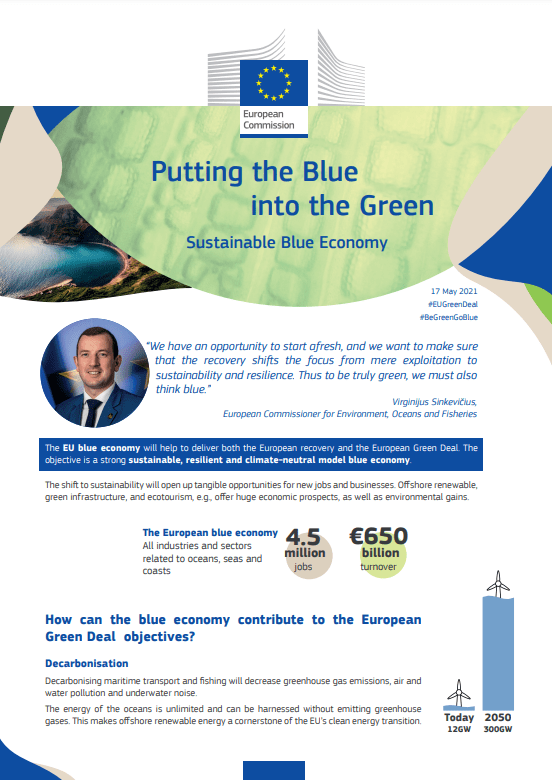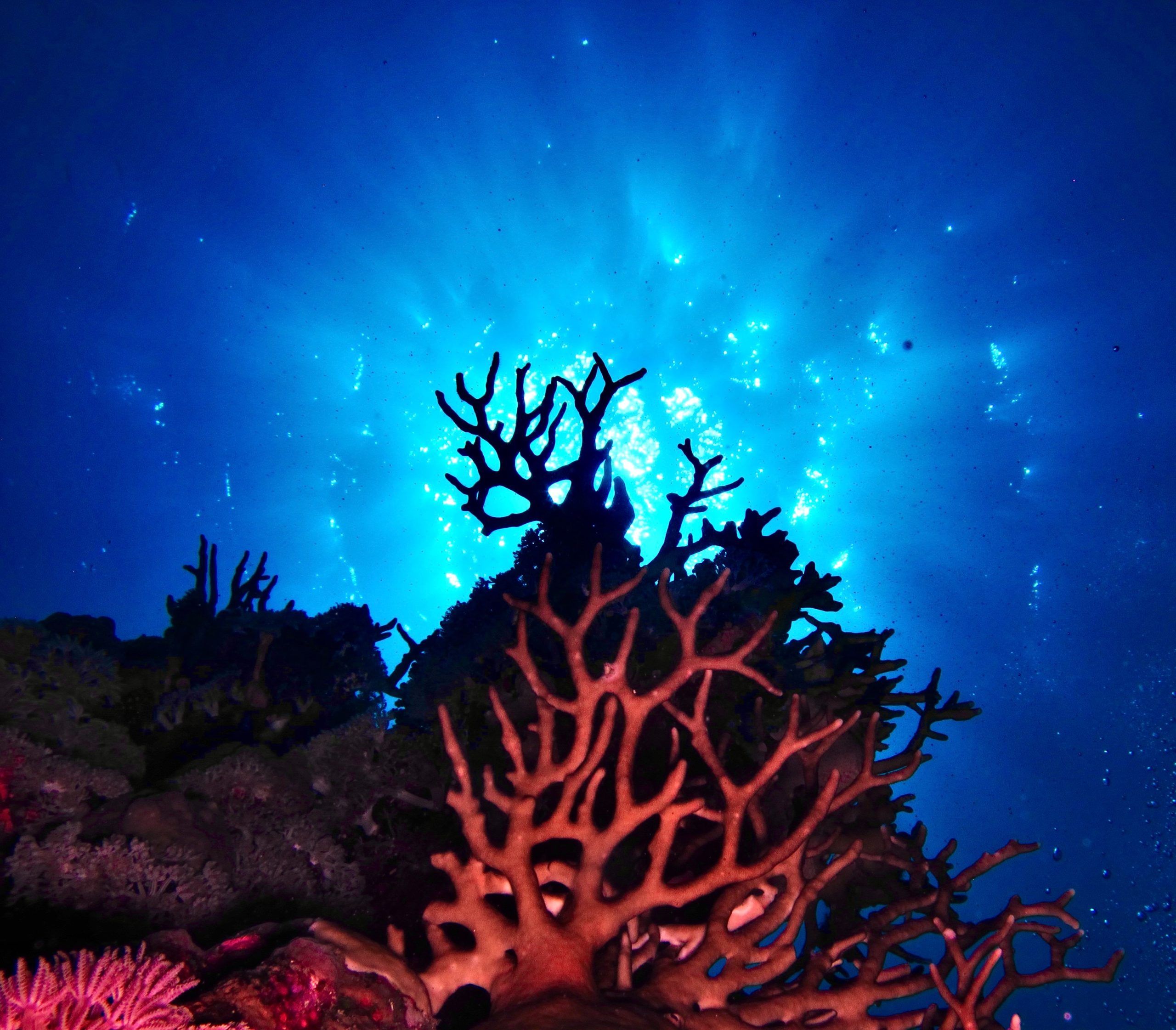The European Green Deal and the Recovery Plan for Europe will define the European economy for many years, or even decades. And the EU’s blue economy is fundamental to both efforts. Not only should the blue economy adhere, like every other sector, to the European Green Deal. It is also indispensable to meet the EU’s environmental and climate objectives. After all, the ocean is the main climate regulator we have. It offers clean energy and sustains us with oxygen, food, and many critical resources. There just can’t be green without blue.
To fully embed the blue economy into the Green Deal and the recovery strategy, the Commission has adopted a new approach for a sustainable blue economy in the EU.
Objectives
The detailed agenda for the blue economy should help achieve the European Green Deal’s objectives, and complement other recent Commission initiatives on biodiversity, food, mobility, security, data and more.
Actions
Rather than an exhaustive action plan, the new approach provides coherence across the blue economy sectors, facilitates their coexistence and looks for synergies in the maritime space, without damaging the environment. It also underlines the need for investment in research, skills and innovation.
Source: European Commission

Putting the Blue into the Green |
A perfect matchmaking in the blue economy sector: MarENet
Let’s suppose you are a young worker looking for employment in the blue economy sector. That you are an experienced professional in that sector, looking to update your skills. Or maybe, that you are an entrepreneur looking for an employee with a specific set of competences. How do you ensure that your demand and your counterpart offer match? How can you find the professional expertise exactly required for a job?
This is exactly what the MarEnet project does.
The blue economy sector is that part of the economic activities related to the ocean, waterways and coastal areas. It refers to both marine-based and marine related activities, ranging from the traditional ocean activities such as fisheries, tourism, shipbuilding and maritime transport, to the emerging industries including renewable energy, aquaculture, marine biotechnology and bioprospecting. It is a thriving and rapidly evolving sector, generating roughly 4.5 million jobs (Blue Economy Report 2021) in Europe. Working in industries in the blue economy sector requires specific skills and training, which are not always readily available in the workforce.

Leading EU initiatives to preserve the oceans |
The MarENet consortium (Universidad de Vigo, Münster Technological University, Université La Rochelle, ACLUNAGA, CEPESCA, Irish Maritime Development Office, ICSEM, Puerto de Vigo) has built a network among blue economy stakeholders (workers, industries, training providers, sectorial organizations, policy makers), designed specific training actions to meet the demands of the industry, and created digital tools to support those actions.
Yet, the purpose of the project is even broader, and aims at increasing the attractiveness of blue careers and promote blue entrepreneurship by facilitating training and networking to business creators.
Source: European Commission







Leave a Reply